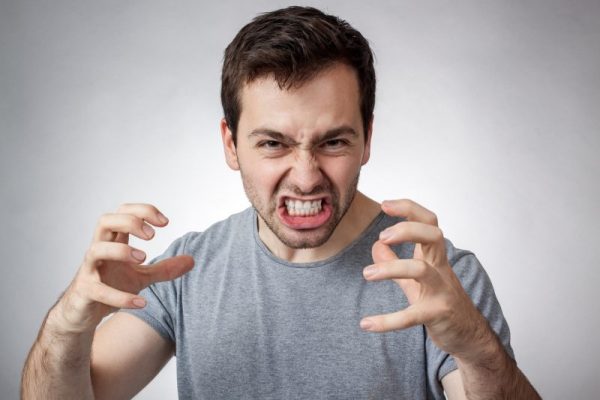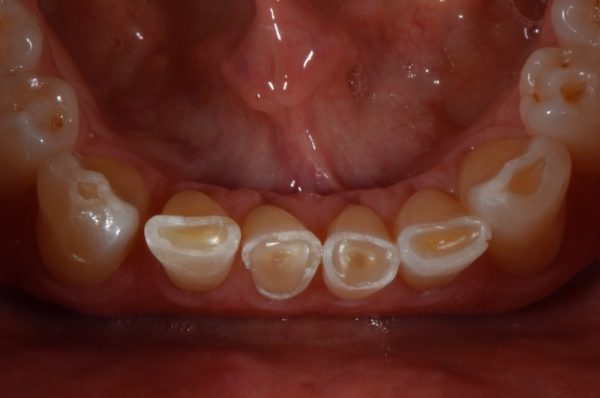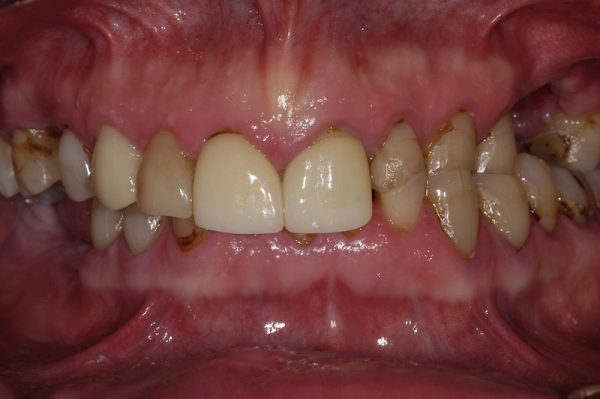The usual cause of a sore jaw in the morning is bruxism. That’s the medical term for grinding your teeth. You might also clench your teeth during the day.
There are two types of bruxism:
- Nocturnal or sleep bruxism People tend to grind their teeth but not clench their jaws
- Awake bruxism People tend to clench, but not grind
Many people don’t even realize they grind their teeth in their sleep.”If they grind at night they often wake up and their muscles are fatigued,” said prosthodontist Dr. Paul Best. “The analogy is if you went out and ran a marathon you’d be sore. If you were grinding your teeth all night, the muscles in your face are going to be sore and your teeth might be sore as well.”
Signs of bruxism
Common clues that you’re grinding in your sleep are:
- Headache
- Sore jaw
- Cracked teeth
- Loose teeth
- Sore gums
- Sensitivity to temperature
Causes and results
Research shows that the cause of grinding and clenching your teeth may be rooted in the central nervous system, which can be influenced by a variety of things:
- Stress and anxiety
- Alcohol
- Narcotics
- Smoking
- Medications, such as antidepressants
- Head trauma
- Sleep issues
If you’re a clencher you might get some tooth loss in the form of little notches close to your gum line. They’re called abfractions. “It was misdiagnosed for years,” said Dr. Best. “People would say it’s toothbrush abrasion or erosion, but they don’t look the same as an abfraction.”
Treatment and prevention
There aren’t a lot of options for treating bruxism. Dr. Best specializes in making devices implants, dentures, crowns and bridges. He also makes hard plastic nightguards for people who grind their teeth in their sleep. “They wear out the plastic instead of their teeth,” he explained. “That’s a good thing. Sometimes they last a long time and sometimes they wear out really fast.”
Having that hard piece of plastic in your mouth when you’re awake doesn’t work all that well, especially if you have to do any talking. Some people will try a soft plastic device, which may be less invasive, but is still often a problem.
‘If you put a piece of soft chewy food between your teeth,” said Dr. Best, “you have a tendency to want to chew it. It can make the situation worse because people tend to be more stimulated to chew.”
Dr. Best has caught himself clenching his teeth during the day, especially if he’s focused on a fine detail when he’s working on a patient. He says it helps to say this mantra: Lips together, teeth apart.”
Trying to fix the damage done by grinding and clenching is often a challenge.
“Bruxism is hard on your teeth and it’s expensive to fix the damage,” said Dr. Best. “It’s a lot cheaper to have a plastic guard than it is to fix teeth. Once you fix a tooth, the next fix is bigger and it gets more and more complicated, more complicated. It’s better to keep it simple if you can.”
Unfortunately, there isn’t a simple cure, but try some of these tips to either minimize the grinding and clenching or minimize the damage.
- Wear a night guard
- Try stress reduction techniques
- Avoid alcohol, narcotic and smoking
- Ask your doctor about medications you are taking
- Exercise (Dr. Best says that help him)
- If you catch yourself clenching, say lips together, teeth apart
Dr. Best also recommends staying away from a diet high in acid foods and beverages. If its pH level is less than seven, it’s acidic. “It’s frightening how low the pH is in all kinds of beverages,” he said. “Sports drinks, coffees, teas, vitamin water, carbonated waters, all kinds of things. It’s hard on your teeth.”
Want more tips on how not to be hard on your teeth? Send me your questions and I’ll do my best to get you the answers.




Leave A Comment